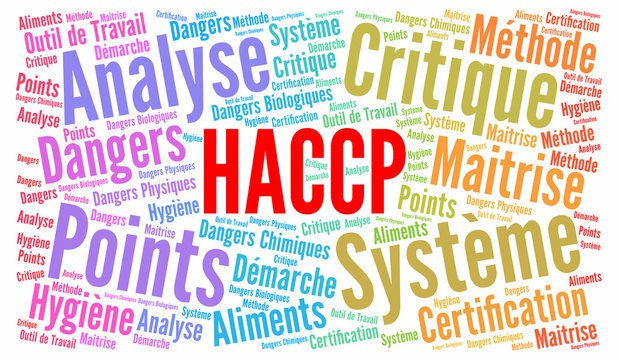HACCP Certification: Your Essential Guide to Food Safety Compliance in Dublin, Cork, Galway, and Beyond
In today's competitive food industry, ensuring the safety and quality of food products is paramount. For food businesses operating in Ireland, including bustling cities like Dublin, Cork, Galway, Limerick, Waterford, and Belfast, HACCP training has become a legal necessity. In this comprehensive guide, we delve into why HACCP training is crucial, the benefits of HACCP certification, and how it helps ensure compliance with Irish and EU food safety laws.
What is HACCP?
HACCP stands for Hazard Analysis Critical Control Point. It is a systematic approach to food safety that focuses on identifying, evaluating, and controlling hazards that could compromise food safety. The principles of HACCP are applicable to all food businesses and provide a framework for effective food safety management.
Why HACCP Training is a Legal Requirement for Food Businesses in Ireland
The legal landscape surrounding food safety in Ireland is robust, driven by both national and EU regulations. The European Regulation (EC) No 852/2004 requires that all food businesses implement food safety management systems based on HACCP principles.
- Compliance with Food Safety Standards: HACCP training equips food business owners, managers, and staff with the knowledge and skills needed to adhere to these stringent regulations.
- Prevention of Food Contamination: Effective HACCP training enables businesses to identify critical points where hazards may arise, allowing for proactive measures to prevent contamination.
- Legal Protection: Ensuring HACCP compliance helps protect businesses from potential penalties or shutdowns due to non-compliance with food safety laws.
The Business Benefits of HACCP Certification
Obtaining HACCP certification is not just about compliance; it also offers numerous business advantages:
- Enhances Reputation: Customers today are increasingly informed about food safety. A HACCP-certified business builds trust and credibility among consumers.
- Increased Operational Efficiency: Implementing HACCP can lead to improved processes, reducing waste and enhancing overall efficiency.
- Market Opportunities: Many retailers and distributors require HACCP certification as a condition of doing business, thus opening more market doors.
- Risk Mitigation: With a structured approach to identifying and controlling hazards, businesses can mitigate risks effectively, leading to fewer incidents of foodborne illnesses.
How to Get HACCP Certified: A Step-by-Step Guide
Getting HACCP certified involves several defined steps:
- Understand HACCP Principles: Familiarize yourself with the seven principles of HACCP.
- Conduct a Hazard Analysis: Identify potential hazards associated with your food products and processes.
- Determine Critical Control Points (CCPs): Establish points where hazards can be controlled or eliminated.
- Set Critical Limits: Establish limits that must be met at each CCP.
- Monitor CCPs: Implement monitoring procedures to ensure your limits are met.
- Take Corrective Actions: Outline steps to take when monitoring shows that a critical limit has not been met.
- Verification and Record Keeping: Verify that the HACCP system is working effectively and maintain documentation.
- Training: Ensure staff are trained in food safety and HACCP principles.
Online vs. In-Person HACCP Training Courses
Food business owners in Dublin, Cork, Galway, and other cities have the option of choosing online or in-person HACCP training:
- Online HACCP Training: Flexible and accessible, allowing participants to learn at their convenience.
- In-Person Training: Offers hands-on learning, fostering interaction with instructors and peers.
- Consider Your Needs: Depending on your team’s preferences and your business requirements, choose the option that will best facilitate effective learning.
Common HACCP Violations and How to Prevent Them
Understanding common mistakes can help businesses maintain compliance:
- Lack of Staff Training: Regular and comprehensive training is essential to ensure all employees understand their roles in the HACCP plan.
- Inadequate Monitoring: Set up regular checks to assess compliance with critical limits.
- Poor Documentation Practices: Ensure that all documentation is thorough and regularly updated.
Maintaining Ongoing HACCP Compliance
Once certification is achieved, businesses must continue to uphold HACCP standards:
- Continuous Training: Regular refresher courses help keep food safety top of mind.
- Conduct Regular Audits: Periodically assess your HACCP plan’s effectiveness.
- Stay Updated: Keep abreast of changes in food safety regulations and best practices.
Conclusion
HACCP certification is more than just a legal requirement; it is a crucial component of any successful food business strategy. By prioritizing HACCP training, food businesses in Dublin, Cork, Galway, Limerick, Waterford, and Belfast can not only ensure compliance with food safety regulations but also enhance their reputation and build trust with customers.
Take the first step towards HACCP compliance today. Enroll in our HACCP & Food Safety training courses for tailored learning that fits your business needs. For inquiries, reach out to us at [email protected].



 349,500 Offered Certificates
349,500 Offered Certificates
 24/7 Online Training
24/7 Online Training
 Money Back Guarantee
Money Back Guarantee
 Fully Accredited Courses
Fully Accredited Courses
